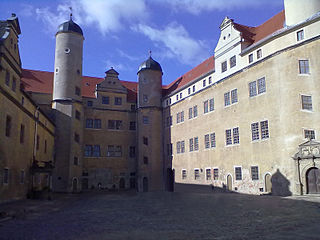Karl-Otto Koch was a mid-ranking commander in the Schutzstaffel (SS) of Nazi Germany who was the first commandant of the Nazi concentration camps at Buchenwald and Sachsenhausen. From September 1941 until August 1942, he served as the first commandant of the Majdanek concentration camp in occupied Poland, stealing vast amounts of valuables and money from murdered Jews. His wife, Ilse Koch, also participated in the crimes at Buchenwald.
Fischer is a German occupational surname, meaning fisherman. The name Fischer is the fourth most common German surname. The English version is Fisher.

Adolf is a given name with German origins.
Harald or Haraldr is the Old Norse form of the given name Harold. It may refer to:

The Biographical Dictionary of the Extreme Right Since 1890 is a reference book by Philip Rees, on leading people in the various far right movements since 1890. It contains entries for what the author regards as "the 500 major figures on the radical right, extreme right, and revolutionary right from 1890 to the present" . It was published, as a 418-page hardcover, in New York by Simon & Schuster in 1990 (ISBN 0-13-089301-3).

Walter is a German, English masculine given name of Germanic origin, composed of the elements walt- "power", "ruler", and hari "army".
Jost is both a German given name and a surname and a Jewish (Ashkenazi) surname. Notable people with the name include:
Ziegler is a common German-language surname meaning "brick-maker" and may refer to the following people:
Werner is a name of German origin. Werner, meaning “the defender” or “the defending warrior”, is common both as a given name and a surname. There are alternate spellings, such as the Scandinavian Verner.
Hans is a Germanic male given name in Afrikaans, Danish, Dutch, Estonian, Faroese, German, Norwegian, Icelandic and Swedish-speaking populations. It was originally short for Johannes (John), but is now also recognized as a name in its own right for official purposes. The earliest documented usage was in 1356 in Sweden, 1360 in Norway, and the 14th century in Denmark.
Fridolin is a German masculine given name, derived from Old High German. Notable people with this name include:

Lichtenburg was a Nazi concentration camp, housed in a Renaissance castle in Prettin, near Wittenberg in the Province of Saxony. Along with Sachsenburg, it was among the first to be built by the Nazis, and was operated by the SS from 1933 to 1939. It held as many as 2000 male prisoners from 1933 to 1937 and from 1937 to 1939 held female prisoners. It was closed in May 1939, when the Ravensbrück concentration camp for women was opened, which replaced Lichtenburg as the main camp for female prisoners.
Koch is a German surname that means "cook" or "chef".
Gross or Groß in German is the correct spelling of the surname under German orthographic rules. In Switzerland, the name is spelled Gross. Some Germans and Austrians also use the spelling with "ss" instead of "ß".
Goetze or Götze is a German surname. It may refer to:
Jürgen or Jurgen is a popular masculine given name in Germany, Estonia, Belgium and the Netherlands. Notable people named Jürgen include:

Hans Koch was a German lawyer, a member of the Confessional Church and a member of the German resistance against Nazism.
Karl is an originally Germanic variant of the male given name Charles, meaning "free man". For further details on origin and meaning, see Churl and Charles.
Hofmann is a German surname. Notable people with the surname include:
Konrad is a German given name that means "Bold Counselor".
This page is based on this
Wikipedia article Text is available under the
CC BY-SA 4.0 license; additional terms may apply.
Images, videos and audio are available under their respective licenses.




